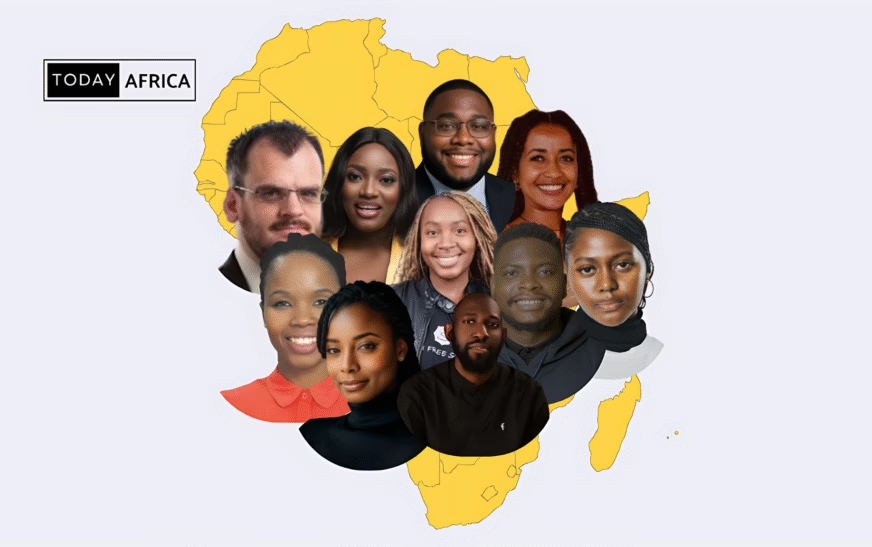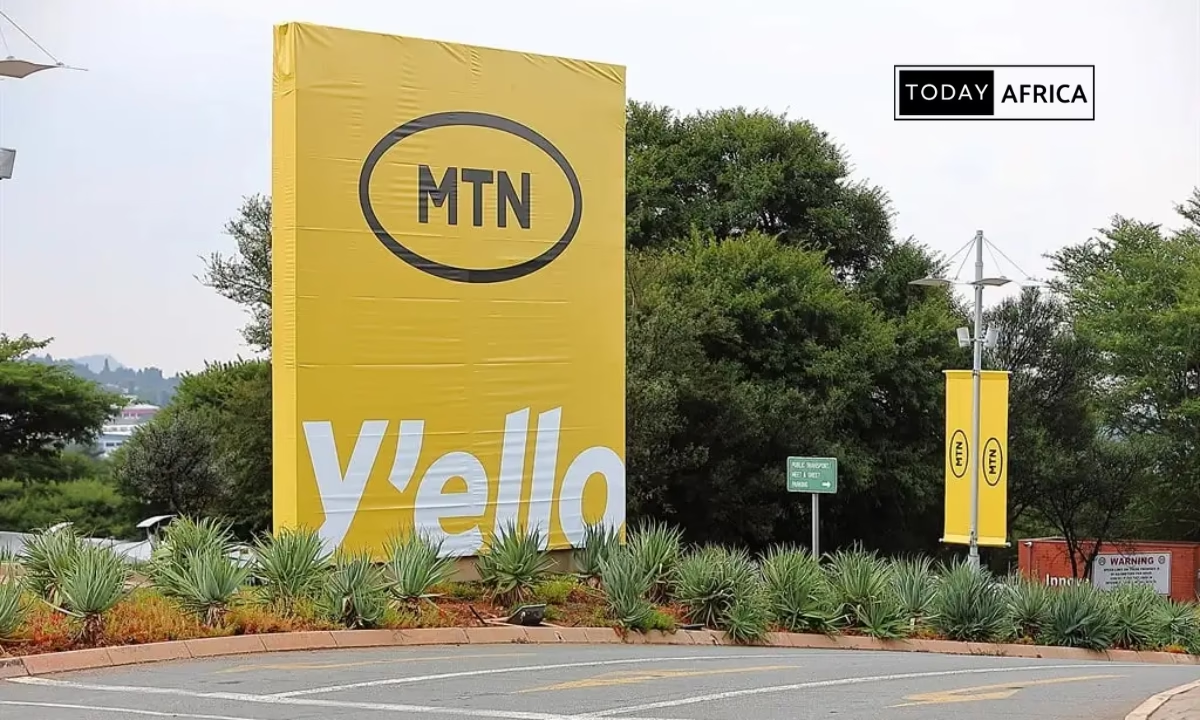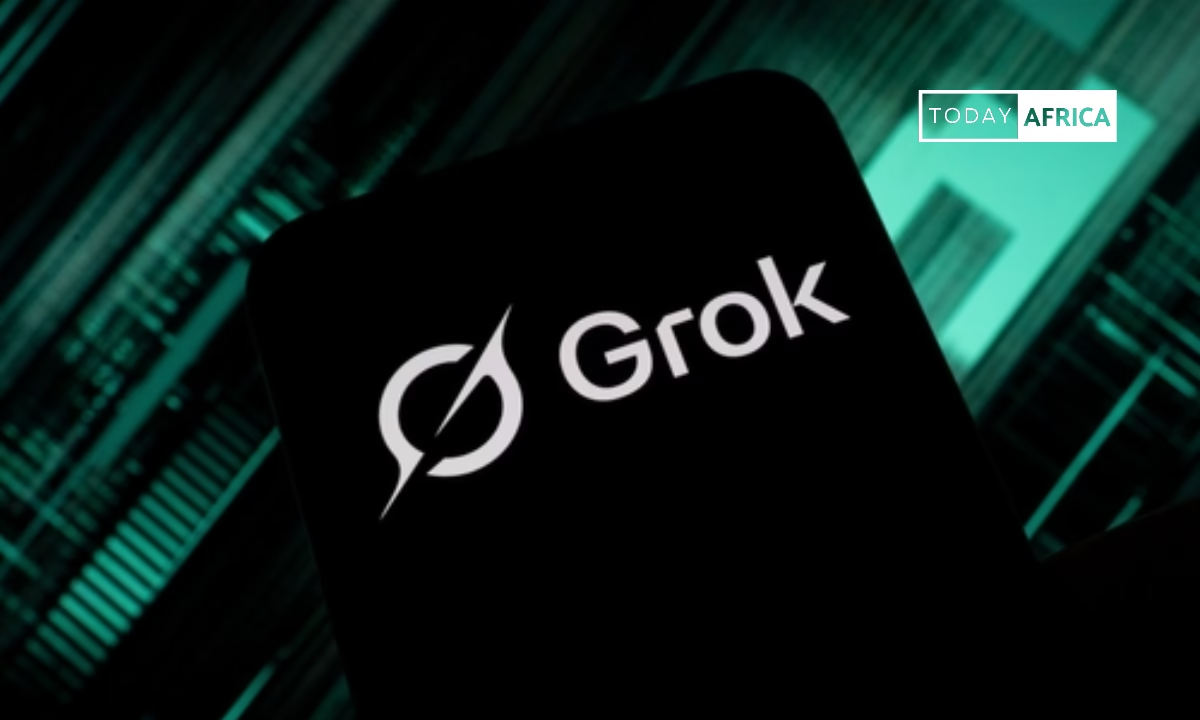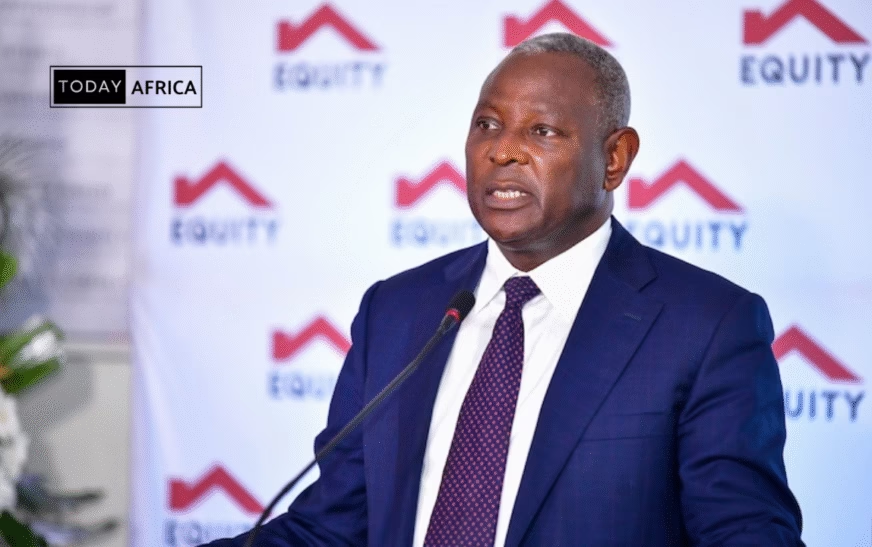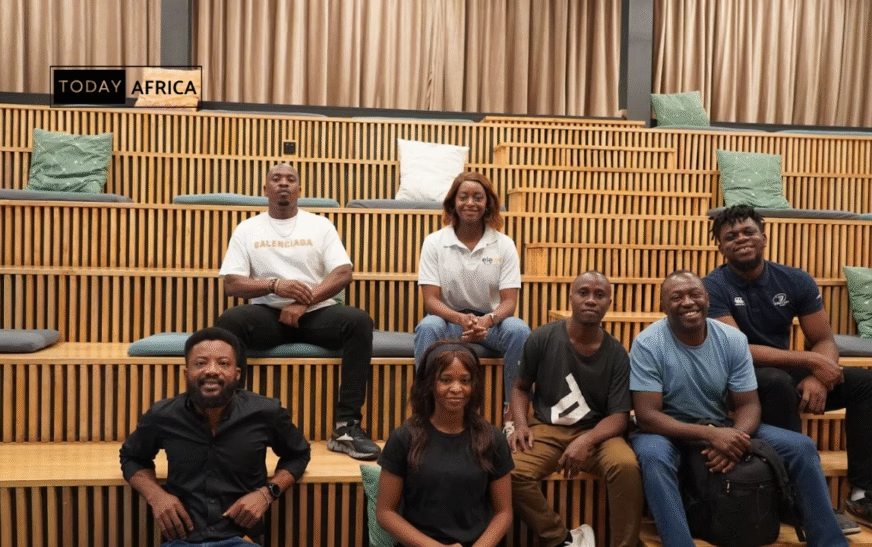Over the past 2 months, I have had the privilege of interviewing 10 African entrepreneurs. Each of these entrepreneurs shared not just their victories but also the challenges and hard-won lessons that shaped their businesses.
Their stories are filled with insights on resilience, innovation, and the power of community. These founders are from South Africa, Nigeria, Ethiopia, Botswana, and Liberia, and operate in industries ranging from agritech to healthtech and creative media.
In this post, I’ll take you deeper into what I learned from these African entrepreneurs and explain how these lessons can help any aspiring entrepreneur navigate Africa’s complex.
TL;DR: Lessons From Interviewing 10 African Entrepreneurs
| Founder | Startup | Key Lesson(s) |
|---|---|---|
| Thuli Zikalala | Yellow Owl (South Africa) | Build businesses that fill overlooked gaps (e.g., Deaf-inclusive media). Purpose-driven ventures create resilience. |
| Divine Idokoh | ValleyBee & Livestocx (Nigeria) | Bootstrap creatively: start with minimal resources and use community partnerships. Innovate by solving a critical problem. |
| Adanne Uche | Ady’s Agro Processing (Nigeria) | Start small and scale: seek family and friends’ help to kickstart. Listen to customer pain points to pivot and refine products. |
| Olamide Ilori | Prospa (Nigeria) | Focus on MVP (minimum viable product) and iterate. Quality and speed are better than overbuilding bloated systems. |
| Atamelang Free | Skin Free Soaps (Botswana) | Hire for shared values, not just skills. Leverage changemaker programs for mentorship and growth. |
| Peter Browne | Farming by Faith (South Africa) | One person with the right tools can scale impact. Use tech to solve localized agricultural challenges. |
| Ayoola Ogunyomi | Umbrella (Nigeria) | Failures are stepping stones: pivot your vision based on infrastructure gaps. Build platforms to support ecosystems. |
| Fana Haregot | Fana Hygiene Solutions (Ethiopia) | Resilience is a superpower: even war can’t stop a purpose-driven founder. Bootstrap with family support and rebuild fast. |
| Christopher O. Fallah | Annita (Liberia) | Solve for the underserved 80% of offline users. Bundle solutions tailored to rural realities. |
| Buyiswa Twala | Agrigreat Soiltech and Envirocare (South Africa) | Sacrifice to fund your dream: take side jobs, save, and reinvest every penny. Break into male-dominated industries boldly as a woman. |
What I Learned From Interviewing 10 African Entrepreneurs
1. Embracing purpose over profit
One clear thread was that these founders are driven by mission, not just money. For example, Fana Haregot of Ethiopia built her hygiene-products business out of personal hardship. “I’m not just building a business,” she explains, “I’m building hope, dignity, and opportunity”.
Thuli Zikalala left her corporate job in South Africa because “even if the money is good, if you’re dying inside, you can’t keep doing it”. In other words, passion trumped comfort. For Thuli, serving the Deaf community was worth the risk: she saw that “there’s a huge gap online… they’re missing out on so many stories.
And no one was doing this in South Africa”, so she created Yellow Owl, a sign-language media house. Similarly, Liberian founder Christopher O’Fallah kept returning to purpose: a self-described “first-generation entrepreneur” determined to solve societal problems through business.
He focuses Annita – a unified platform – on “the 80%” of unbanked, offline Africans that bigger platforms overlook.
a. Finding personal “why”: Every founder had a story that sparked the venture. Adanne Uche started food-processing after noticing adulterated spices in the markets – “It was the need,” she says simply. That need to provide safer, local food drove her forward.
b. Purpose boosts resilience: In turbulent times, purpose keeps founders going. When war destroyed Fana Haregot’s factory, she recalled her mission and courageously rebuilt: “I asked myself, what can I control? I had to be courageous and restart”. The sense that they were doing meaningful work – whether empowering marginalized groups, improving food security, or breaking cultural barriers – gave them grit to persevere.
2. Bootstrapping and funding
Despite big visions, nearly all these startups began with almost no capital. Instead of waiting for investors, the founders got scrappy and creative. Divine Idokoh of Nigeria began her smart-beekeeping startup on “no funding, no investors – just a group of youths trying to push an idea with passion.”
She built prototype beehives from discarded drums and wood scraps with help from a supportive beekeeper. As Divine put it, it was “bootstrapping at its purest: creativity in place of cash”.
c. Use what you have: When Buyiswa Twala’s organic fertilizer idea lacked funding, she put herself to work. She dropped out of university, took a manual construction job, and worked overtime to save startup money. With those savings, she bought small equipment and began production, reinvesting every first profit back into the business.
d. Family and community support: Several founders leaned on personal networks. Adanne Uche began Ady’s Agro Processing with a ₦30,000 loan from her brother, then later secured a Central Bank loan and grants.
Fana Haregot’s mother risked everything too: when no bank would lend to a young entrepreneur, “she gave me the deed to her house,” says Fana, enabling a crucial micro-loan. Even a supportive spouse or friend can act like a co-founder.
Thuli Zikalala notes her privilege in having a fallback: “I’m fortunate… if something didn’t work out, I could always call my brother and crash on his couch”.
e. Bootstrapping tech startup costs: On the tech side, Olamide Ilori (a fintech lead engineer) points out that sometimes the biggest costs are regulatory or infrastructure. Christopher O’Fallah’s fintech needed heavy capital for licenses, so he initially self-funded 100%, later adding small prize money ($3,000) before seeking investors.
Olamide himself highlights that launching an MVP and iterating fast avoids unnecessary expenses: “Breaking things into smaller chunks helps you move fast and maintain quality… fewer features with flawless execution beat bloated, buggy code every time”.
In short, focus on core features first and grow gradually.
3. Overcoming challenges and failing forward
These founders didn’t hit a jackpot first try; they learned, pivoted, and kept going. Adanne Uche shared how three earlier businesses fizzled because she lacked structure: “There wasn’t a strategy… just so much passion”.
Rather than giving up, she listened to the market. When she noticed families lacked time and hated adulterated food, she pivoted from event planning to grocery sourcing and food processing. Now Adanne’s fourth business is thriving on real consumer needs.
f. Turn losses into lessons: “I failed… that pushed me back to paid employment,” says Ayoola Ogunyomi, who then built Umbrella (a startup ecosystem platform) after his setback. His failure revealed the bigger problem: “the issue wasn’t one of innovation, but infrastructure”. Today, Umbrella bridges that gap for others.
g. Resilience in crisis: Fana’s experience shows resilience in action. After the war looted her factory, she lost everything in 2020. Yet she rallied: “Our community needed us… I had to be courageous and restart”. Within a year, she repaid her loan and resumed production with minimal pay until business could self-sustain.
h. Fear is normal: All founders acknowledged fear but shrugged it off: At 20, Buyiswa feared “a male-dominated industry,” but realized “nobody’s going to take out a gun and shoot you” for pitching compost made from township waste.
Similarly, Thuli didn’t let a lack of experience deter her: “I’m fortunate…if something didn’t work out, I could always call my family,” allowing her to “take that leap”.
The lesson? Calculated risks are necessary – often what seems radical is just moving beyond fear when you have little to lose.
4. Innovation and product-market fit
Each founder identified a real problem and tailored their solution to local needs. They emphasized listening to customers and staying lean.
i. Solving real pain points: Thuli saw that South Africa’s Deaf community was excluded from media; she turned that into Yellow Owl’s mission, breaking new ground in sign-language media. Divine, after seeing a missing pollinated maize cob, used her engineering background to equip beehives with sensors – “precision” technology to boost local honey and food production.
Adanne noticed market adulteration, so she built a food brand with 100% local, preservative-free ingredients. Christopher focused on how rural market women handle cash without banks; he built Annita to meet that offline 80%, bundling e-commerce, fintech, AI, logistics, etc., into one user-friendly system.
j. Lean experimentation: “Launch fast, then iterate,” to borrow a mantra, was echoed. Adanne launched with one loan and a few ingredients, then slowly expanded her product lines as she learned. Olamide emphasizes focusing on the minimum viable product (MVP) and not overbuilding: “What’s the most critical part of this product?” he asks, stripping away fluff to move quickly without sacrificing quality.
k. Technology as an enabler: Founders see tech as a multiplier. Peter Browne developed a platform for farmers with just himself as developer, teaching us that even one person with the right tools can scale impact.
Olamide Ilori built Prospa’s dashboard to automate a five-minute business account (instead of weeks), ensuring trust with clean, fast code. Divine’s bee sensors provide data that traditional methods can’t.
These stories illustrate that appropriate tech fits local context – whether it’s drones for rural banking, an online livestock market (Divine’s Livestocx), or mobile UIs tailored for farmers (Christopher).
5. Building and leading teams
A startup’s story can only go so far without a team. These founders understood that culture and values matter when hiring and scaling.
l. Hire for mission alignment: Several insisted they recruit people who believe in the vision. Fana Haregot explicitly says, “The team must share your vision. Without that, your business will fail.” She looks for emotional intelligence and shared values (environment, dignity) over raw skills. Atamelang Free makes the same point: she hires people “interested in sustainability and giving back” because those values are core to Skin Free Soaps.
m. Teach and learn: At the start, some founders did everything themselves so they’d know the business inside out. Thuli volunteered for every interpreting gig, and Atamelang learned graphic design and project management to handle early tasks.
Fana first tried interpreting in the field, then advises aspiring founders: “I master everything” about the business, so she can train others. When hiring, they used referrals and direct conversations rather than formal interviews, trusting personal recommendations to gauge fit.
n. Community and mentorship: Beyond paid staff, the community plays a big role. Ayoola built Umbrella in part because his mentors had been like an umbrella for him.
Many founders mention incubators, fellowships, and peer networks: Atamelang joined changemaker programs (YALI, Tony Elumelu) to sharpen her plan; Buyiswa attended sustainability events and used Today Africa networks to learn and find partners.
The lesson is clear: seek mentors and help others in turn. Christopher now trains young Liberians, and Fana mentors youth in Ethiopia, paying forward the guidance they once received.
6. Marketing, growth, and resilience
Finally, we saw practical strategies for growth:
o. Word of mouth & authenticity: Without big ad budgets, many relied on organic buzz. Atamelang says “happy customers are our biggest promoters”. Fana treated early clients like “kings” and leveraged storytelling on radio/TV, later TikTok, and expos. Buyiswa stood out by literally wearing branded overalls at farming events to spark conversations. Their secret: be present, share success stories, and partner with others.
p. Diversify and adapt: Adanne Uche’s company survived Nigeria’s volatile market by diversifying products and services (white-labeling, seasonal items). When inflation hit Divine’s plans, she switched from imported sensors to local solutions: “Inflation has made it hard to get some materials… we had to be creative… so we found local people to produce for us instead of importing.” Adapting like this turned crises into innovation.
q. Keep customers at the center: Olamide’s approach was user-driven: Prospa’s features (sub-accounts, invoices, etc.) were built by “sitting down with business owners and listening”. Christopher’s team literally trains and meets rural users to ensure Annita works for them. This user-first mindset led to stronger retention and trust.
Conclusion
Interviewing these African entrepreneurs revealed that many of the universal startup lessons – finding product-market fit, building a strong team, being resilient – take on new dimensions in Africa’s context.
Funding may be scarce, but creativity abounds. Purpose often fuels progress more than profits. By combining sweat equity with savvy tech and community support, these entrepreneurs are not just building businesses but also uplifting communities.
Whether you’re an aspiring founder or an investor, you can learn from their journeys. Start by listening to real problems in your community, then lean into resourcefulness and persistence.
And remember: “There’s always a way if there’s a will,” as Fana wisely puts it. If you’re inspired by these stories, follow their leads: seek out mentorship, validate ideas quickly, and iterate fast.
FAQs
Q1: Why focus on African startup founders?
Because they operate in challenging environments and their solutions often address fundamental societal needs.
Q2: How can I launch a startup with limited resources?
Start small, leverage local networks, and iterate as you learn from your users.
Q3: What industries are African founders innovating in?
Fintech, agritech, healthtech, sustainability, and creative industries are leading the way.
Q4: What is the biggest challenge they face?
Access to funding, infrastructure gaps, and regulatory hurdles are common barriers.
Q5: How do they build trust in their communities?
By involving local stakeholders, focusing on user education, and delivering consistent value.
Explore the full interviews linked below to dive deeper into their advice.
- Facebook: Today Africa
- Instagram: Today Africa
- Twitter: Today Africa
- LinkedIn: Today Africa
- YouTube: Today Africa Studio

